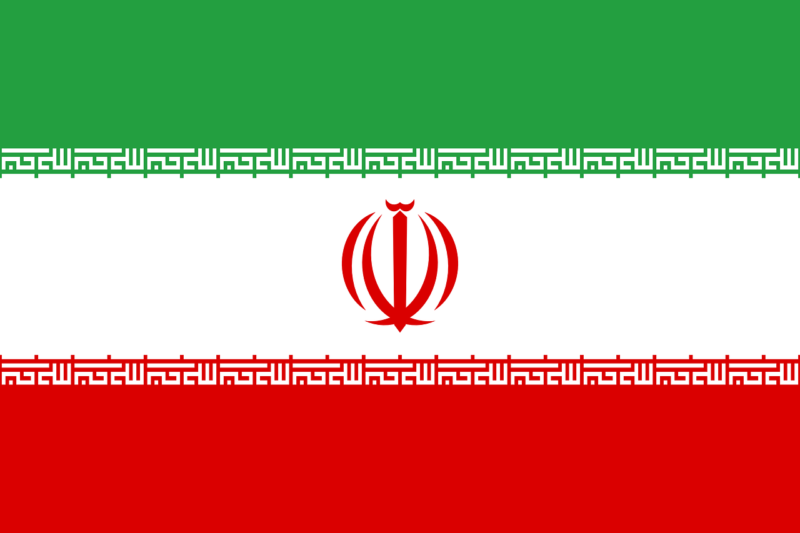In September 2023, 30 planned explosions aimed at Tehran, the capital city of Iran, were thwarted, saving numerous lives and preventing mass chaos. Iran’s government classified these planned attacks as the responsibility of terrorist organizations, subsequently arresting 28 individuals in connection to them. The arrests were conducted through several raids in Tehran, Alborz, and West Azerbaijan by the state, resulting in Iran linking the attacks to ISIL (ISIS), an infamous terrorist organization responsible for several severe terrorist attacks globally. Along with the arrests, large amounts of explosives, 17 pistols and ammunition, communication devices, and more were confiscated during the raid, with two Iranian agents being wounded in the process.
Following the foiled plots, the government of Iran released a statement discussing the event illustrating that the attacks were meant to disrupt “the country’s security authority, creating an unstable image of the country, sowing despair and fear in society, and instigating chaos and protests exactly during the anniversary of last year’s riots,” referencing unrest across Iran in response to alleged police brutality, according to Al Jazeera. Additionally, the government-released statement also described the backgrounds of the planned attacks, stating that all of the arrested individuals were known members of ISIL, with some having a history of working with Takfiris – Muslims who accuse other Muslims of being apostates or infidels – in nations such as Syria, Afghanistan, Pakistan, and the Kurdistan region in Iraq. The punishment for apostasy or infidelity is death in the practice of Islam, denoting the aggressiveness of these terrorists in using militarism to spread such ideology.
Had the bombings been carried out successfully, the number of casualties and destruction to infrastructure could easily have been severe due to the central location and amount of planned explosions. Terrorist organizations have, and continue to, instill fear and destruction in communities, creating a drastic problem globally, with many nations making it a priority to prevent terrorist attacks on their country. Using violence and fear to achieve political or ideological goals, as terrorist organizations do, is never an acceptable practice, as the harming of civilians cannot be justified by any political advantage. While terrorism has long been an issue, nations struggle to overcome the issue. Many leaders often decide to retaliate against terrorism with similar acts of violence and destruction. While these are often successful in harming terrorist organizations, the use of violence does not realistically help achieve the overall goal of preventing terrorism. Instead, a repeated pattern often occurs, where terrorists retaliate, using the element of surprise attacks to instill vulnerability in a community. Iran should be praised for preventing these attacks that could have easily injured numerous civilians, but the government should be careful in retaliating with asymmetrical violence, as this will only cause a pattern of violence and subsequent fear and vulnerability.
The thwarted explosions in Iran come during a time of unrest and instability across the nation as a result of continuous protests following the death of Mahsa Amini in police custody last September. Amni was initially arrested for failing to comply with Iran’s dress code and was 22 at the time of her death. The instability these political protests caused nationally allowed terrorists to capitalize on the vulnerable state, planning the attacks that would have caused further fear and chaos. Last October, ISIL attacked the holy Shah Cheragh shrine, killing 13 people while damaging an area of cultural and religious importance. Following the attack almost a year ago, a second attack occurred on the shrine this August, where members of ISIL opened fire on the shrine using guns, killing two people. The attacks on the shrine left the community scared and vulnerable, allowing space for the planned explosions that were fortunately thwarted, saving countless lives.
The successful obstruction of these attacks is a fortunate event, but unfortunately, these attacks are often successful in killing, injuring, and creating fear in civilians. Nations that face instability and unrest, such as Iran, are increasingly vulnerable to these attacks and must find a solution to protect their civilians. Using violence to achieve a political goal should never be justified, and the solution to this practice must come in a nonviolent form as well, in order to stop the cycle of repeated violence.
- EU Reverses Announcement Previously Halting Aid To Palestinians - January 24, 2024
- United Nations Ends Tigray Investigation, Despite Continuing Abuse - January 17, 2024
- Numerous Planned Acts Of Terrorism Foiled In Iran - December 20, 2023


